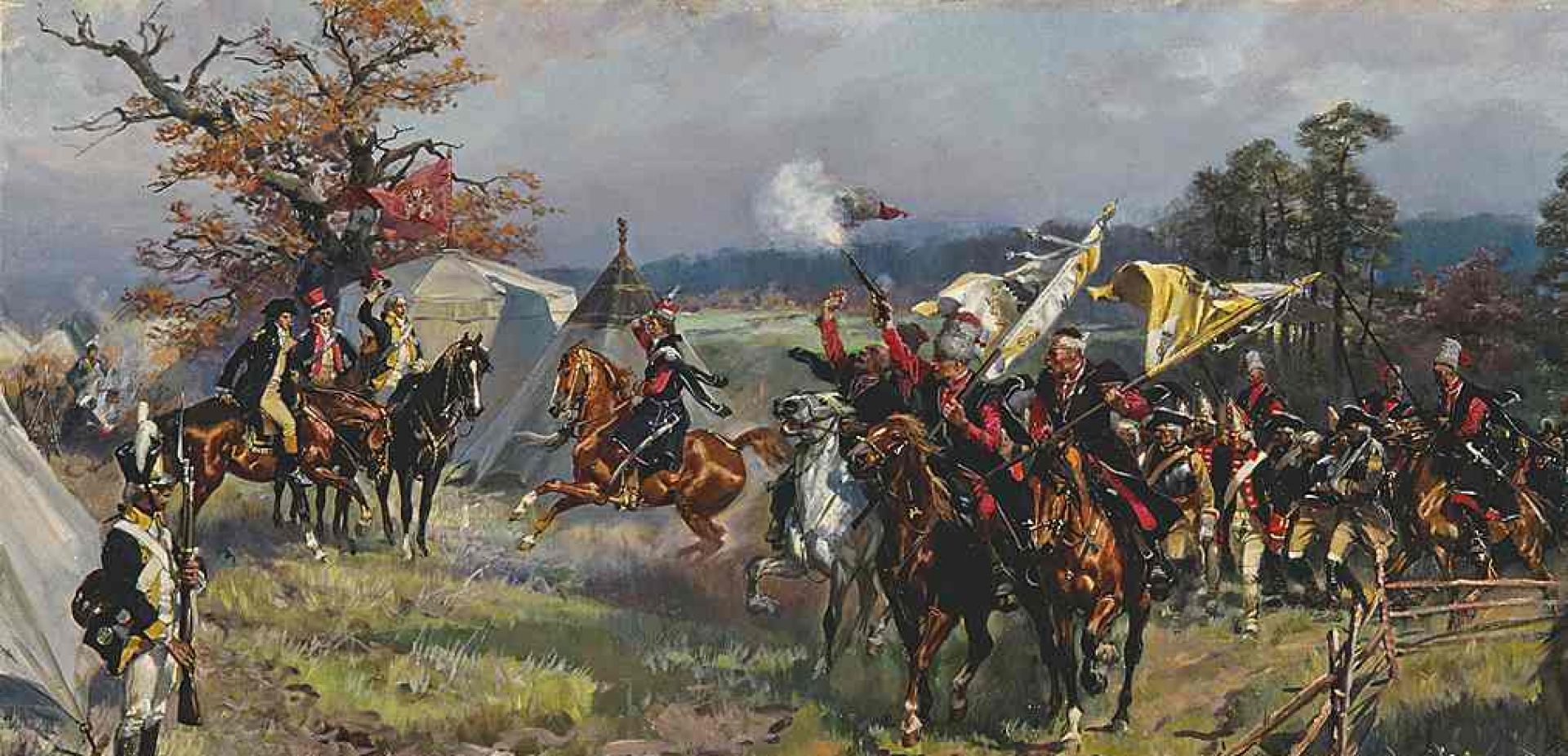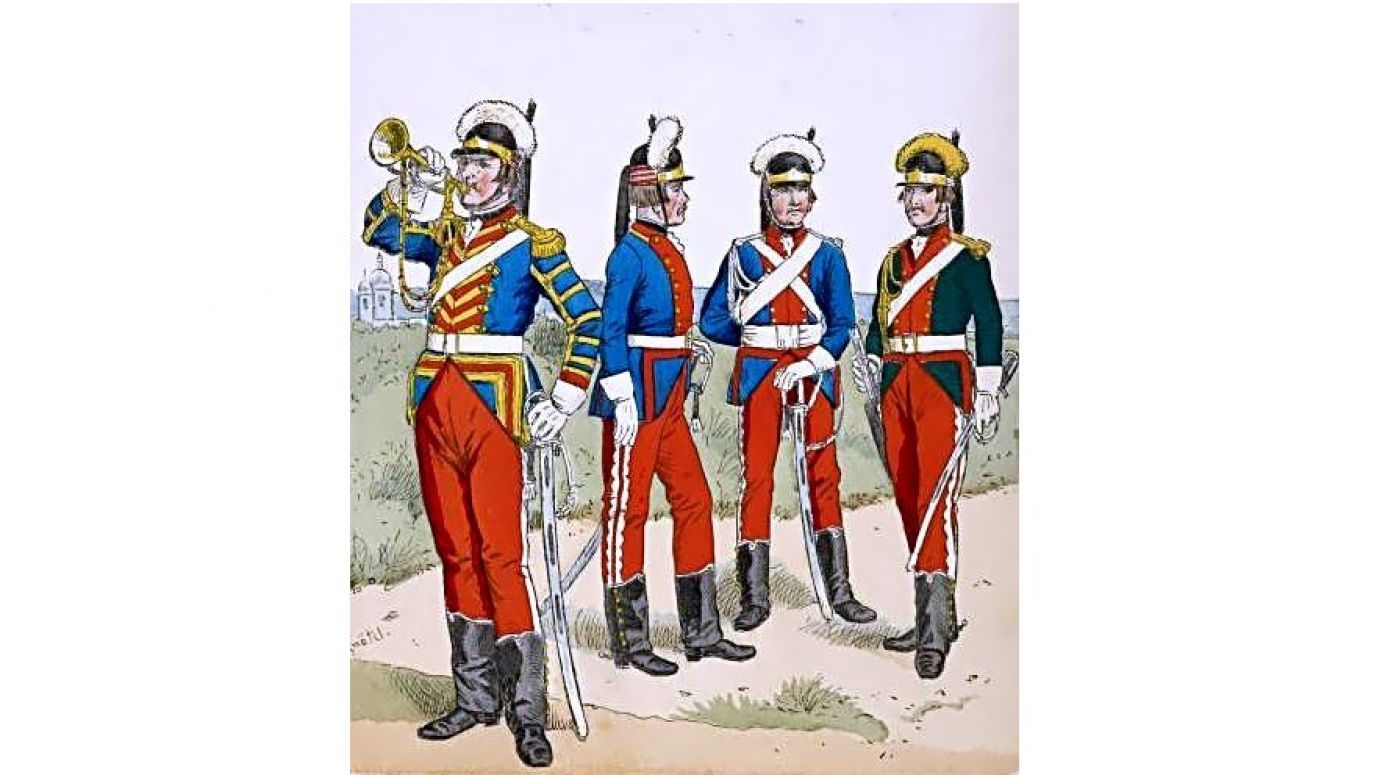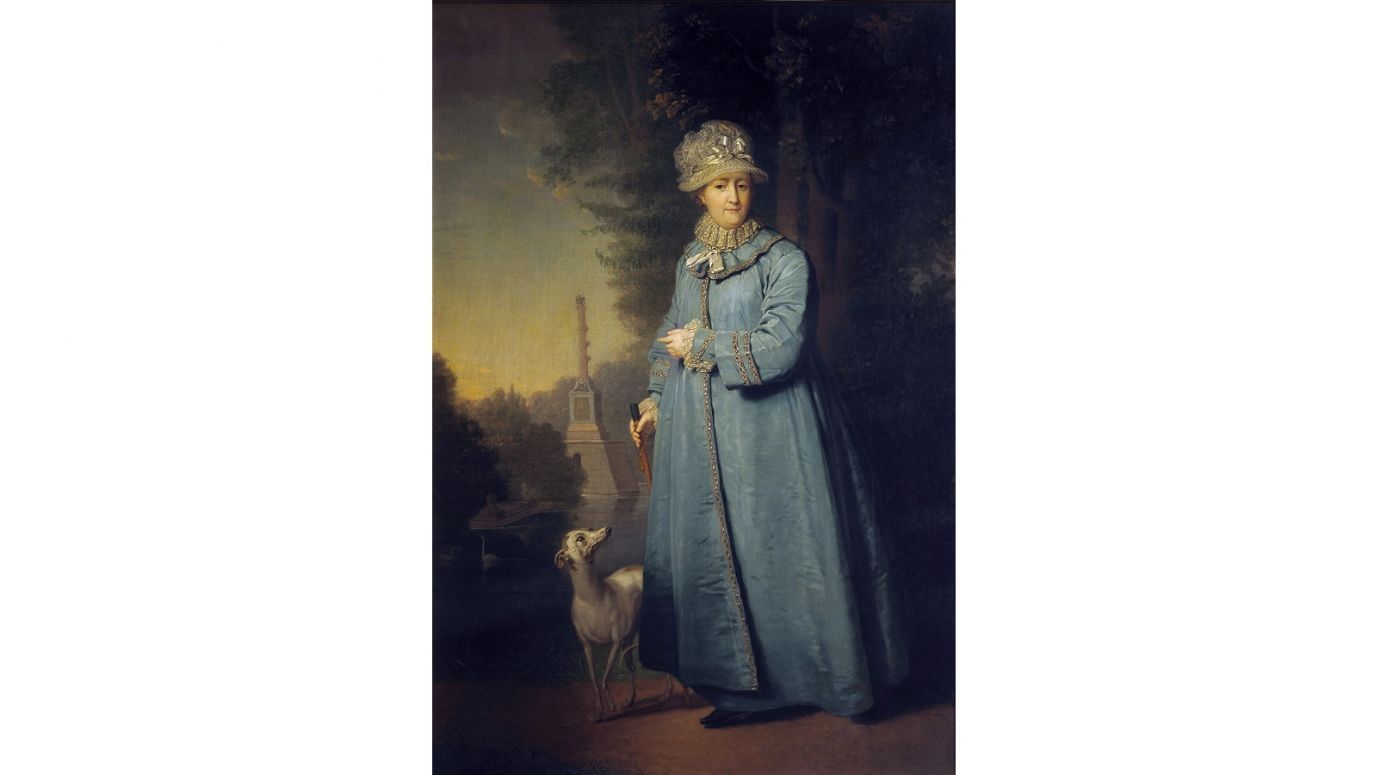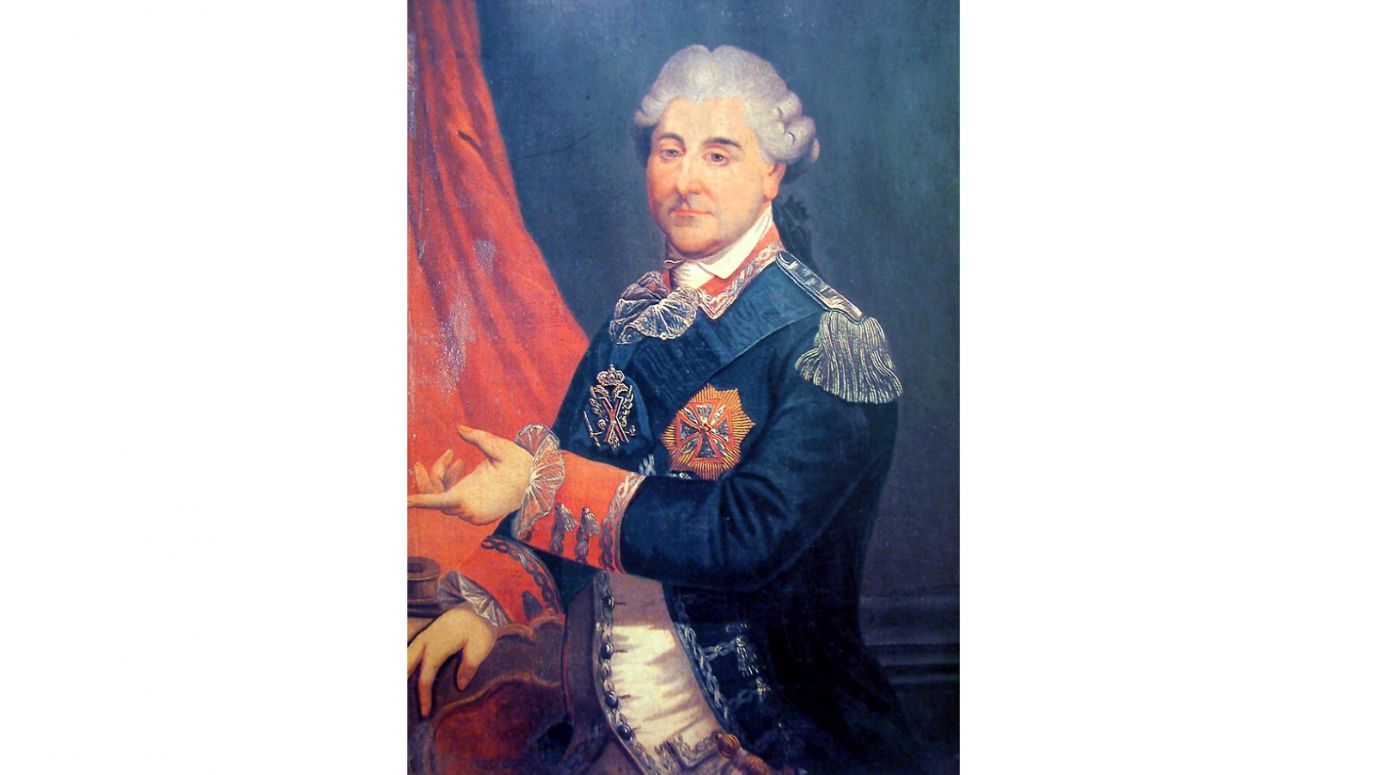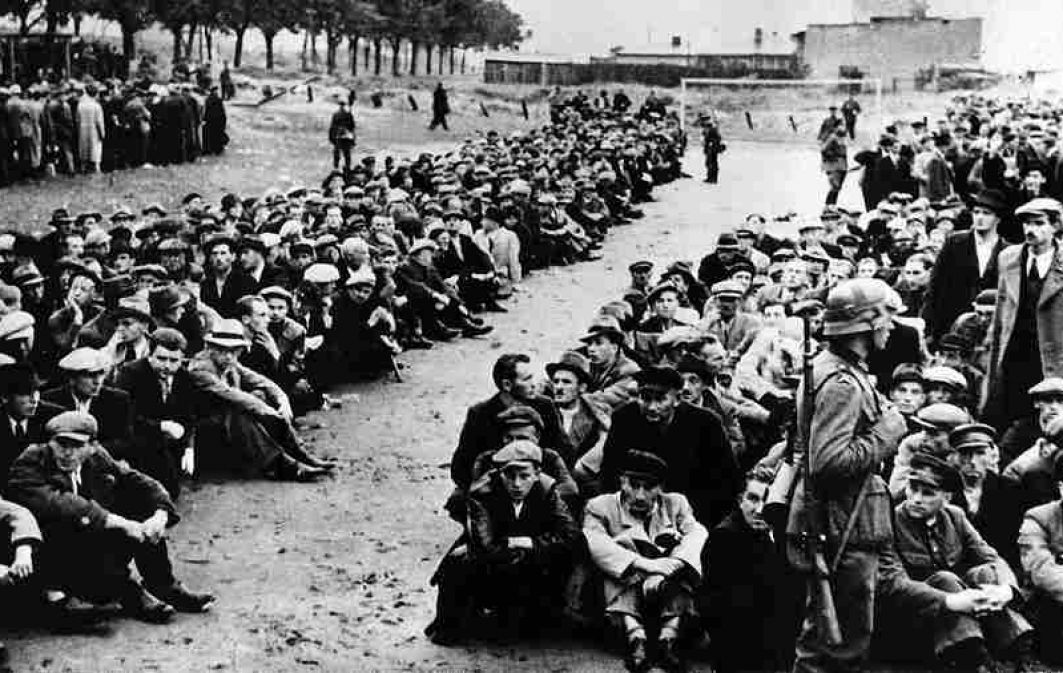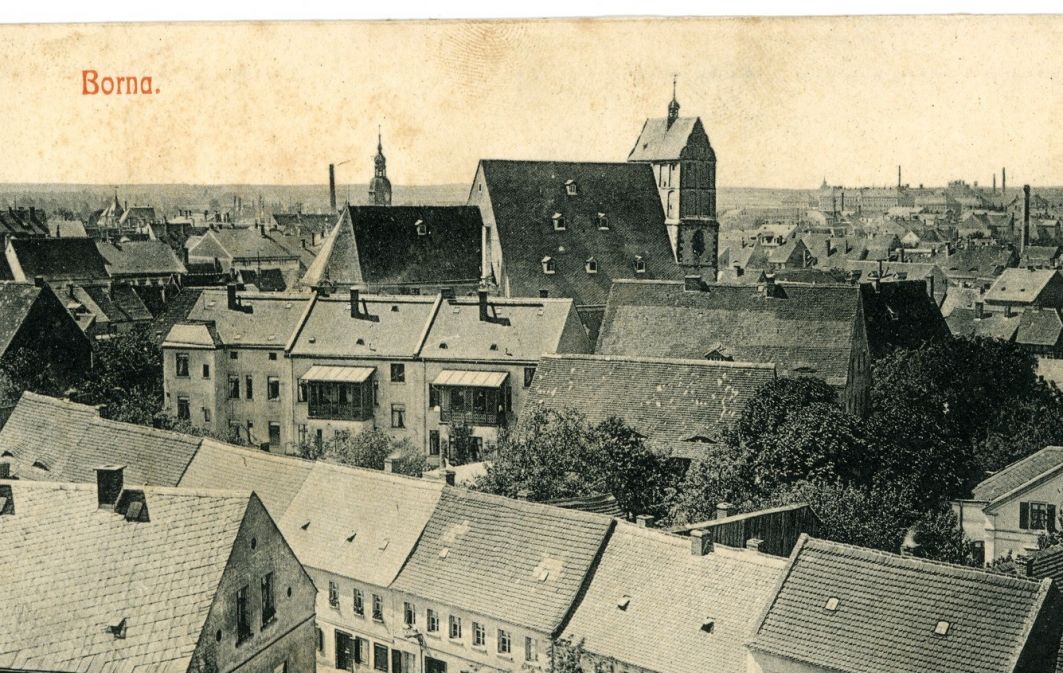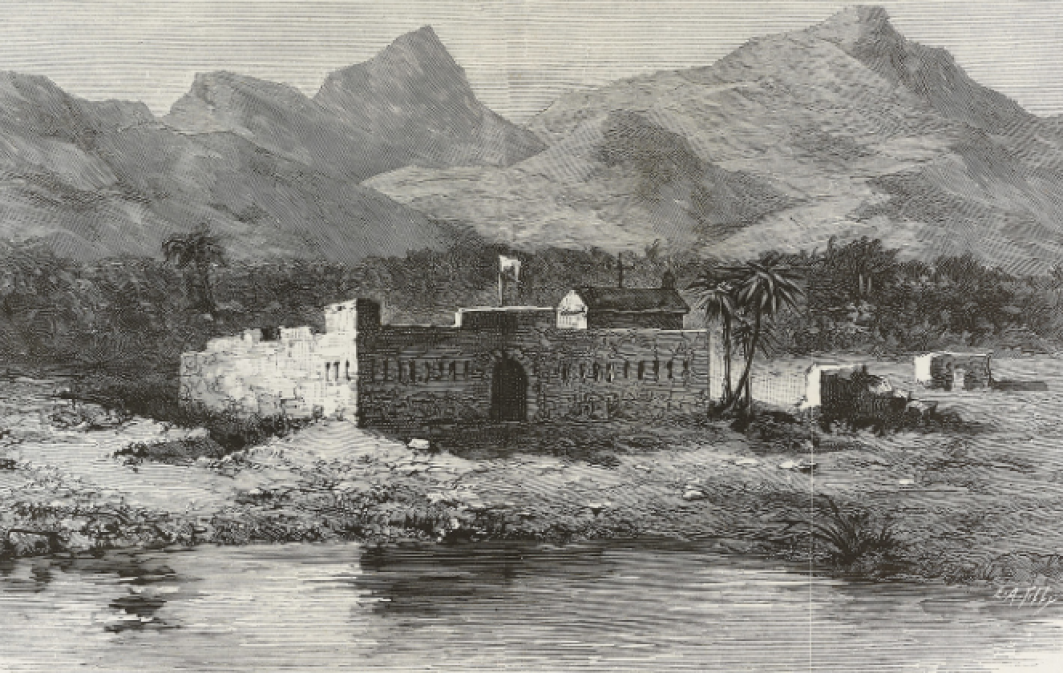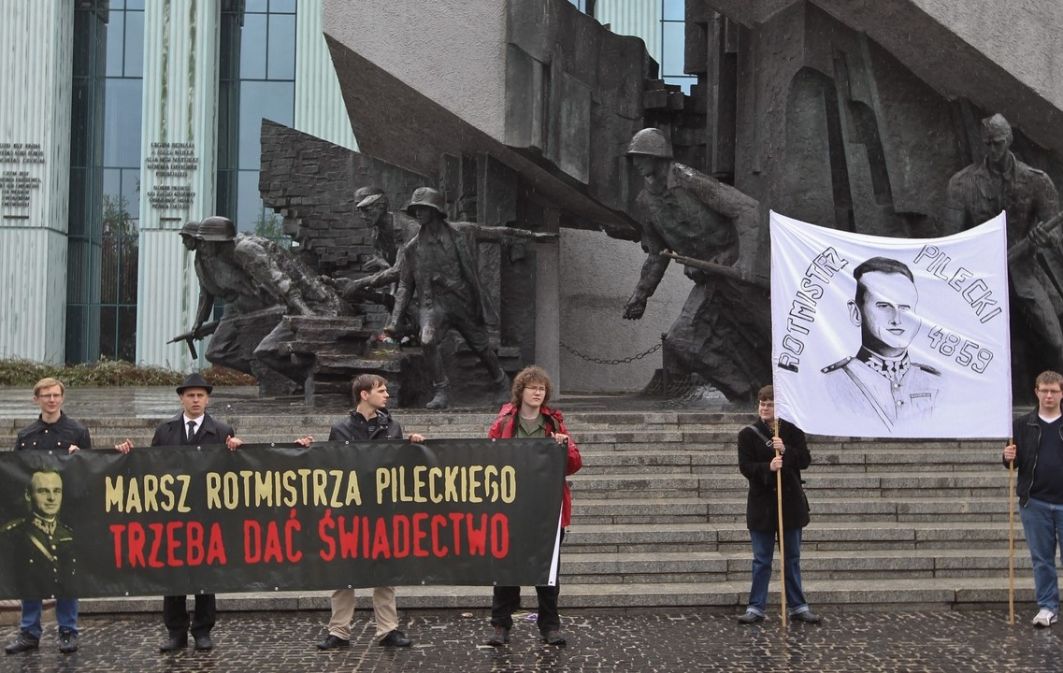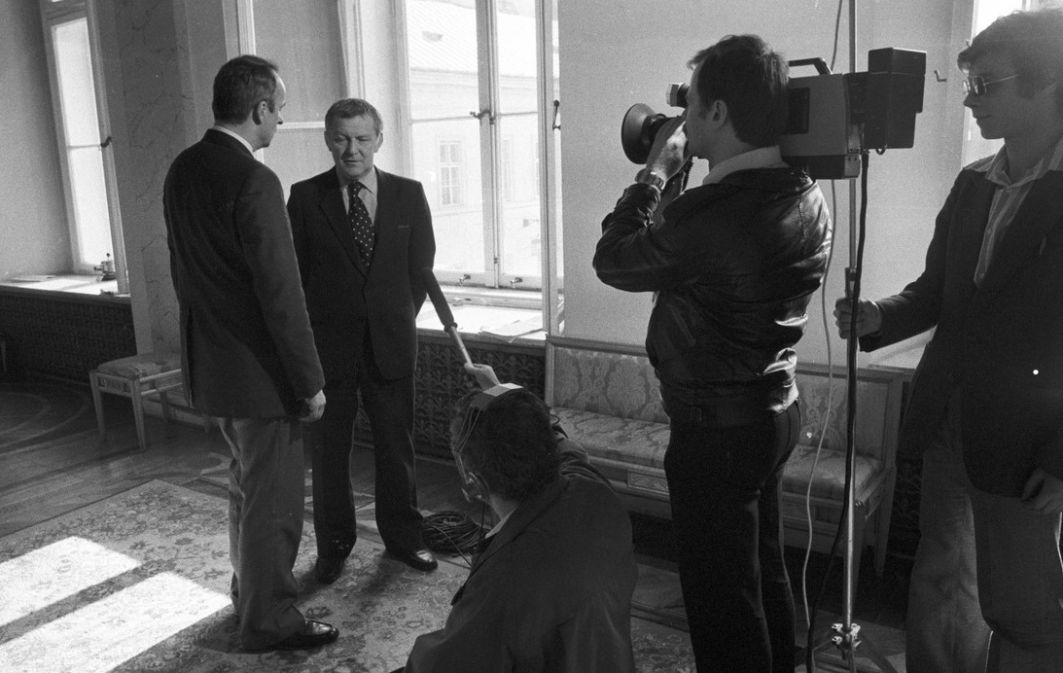The king surrendered an unbeaten army. Why did the Poles bow before Catherine the Great?
04.05.2022
The King regarded the Russian military preparations as a demonstration of strength. The probability of a Russian invasion he thought was very low and was convinced that if it came to war, Poland would not defend itself alone, but with its Prussian allies.
The eighteenth century Polish-Lithuanian Commonwealth and the later Polish Peoples’ Republic (PRL), have much I common on closer inspection. They were, to a greater or lesser degree a Russian or Soviet protectorate. The Polish kings and party secretaries of the Polish United Workers’ Party, the PZPR, fulfilled the same roles. Unfortunately, King Stanisław August Poniatowski was closer to the pliant Edward Gierek or Wojciech Jaruzelski than Władyslaw Gomułka who found himself often at odds with the Soviets. When the decisive moment in the defence of the May the Third Constitution arrived, the last Polish king could have given the green light for a pitched battle with the Russians. However, he preferred the role of a restraint and entered the [anti-constitutional – ed.] Targowica Confederation.
When we look at the entire range of the political activity of Stanisław August it has its highs and lows. Months of intensified activity contrasted with weeks of apathy and depression. The first half of 1791 showed that the king was in optimistic mood.
Long live the King and the Constitution
The monarch came to an understanding with the reformers and engaged in the work on the constitution to such an extent that he became in fact its main author. After a few months, the document was ready and it only remained for it to be ratified. The only potential obstacle lay the parliamentary opposition.
What of Russia? At this time it was embroiled in a war with Turkey. The leading reformers, Hugo Kołłątaj, Ignacy Potocki and the king himself were centred on the hope that Tsarina or Empress Catherine would swallow the bitter pill that would be a sovereign Poland.
Short sighted? Naïve? We shall return to this point . The positive outlook maintained by the Poles was the result of an alliance with Prussia. In case of a war with Saint Petersburg, Berlin was obligated to support Warsaw. The king thought that his international hand was a strong one. Time was to tell whether this calculation was founded in reality.
Meanwhile on 3 May 1791, the reformers were ready to issue the opposition and the empress a challenge. In order to quell any resistance from the supporters of the ancien regime the Royal Castle in Warsaw was packed with troops and with Prince Józef Poniatowski, the king’s nephew, and other officers at his side. Thousands of residents crowded the streets around the Castle. Estimates vary from between 12,000 and 15,000 to even 25,000. Opponents of the constitutional reforms were not so much isolated as overwhelmed. Parliamentarian Jan Suchorzewski stubbornly took on the role of the earlier conservative, Tadeusz Rejtan, determined not to concede defeat.
Suchorzewski presented himself in the parliamentary chamber together with his six-year old boy and thundered that he would kill him if the Constitution was ratified. He was swiftly silenced, but there was uncertainty as to the result of the actual voting. Cries of “for” and “against” filled the chamber for the next few hours. Finally, the King raised his hand and the reformers “took this as a sign of royal assent.”
Further events happened in quick succession: the crowd cried “ Long live the King, long live the new Constitution”. Inside, the king swore an oath on the Gospels, thus placing his seal on the Constitution.
A constitutional carnival instead of rearmament
In the evening of 3 May, the king could start to think of himself as a man fulfilled. His participation had ushered in necessary reforms in social, military and economic order and he himself was as popular in society as he had never been before, nor since. This lasted for a few months. A rumour began to circulate in Warsaw in July : the conservatives were plotting a counter coup. “The people stated that they would guard our king’s security day and night and started to concentrate their criticism onto Hetman or field commander [Branicki], Sapieha and Bishop Kossakowski… and even onto [the Russian ambassador Yakov] Bulgakov.
The second half of the year was given over chiefly to a “constitutional carnival” with festivals, dinner parties and balls in honour of the king and the constitution hosted seemingly without end. The most enthusiastic adherents of the “Governmental Legislative Act” went a step further and established the ‘Society of the Friends of the Constitution of the Third of May’. Their supporters showed their support by sporting all sorts of symbols, cockades and signet rings. If the nonchalance of the public was understandable, that of the authorities shocks and inspires to various degrees. The King and his associates, for a few weeks behaved as if the Commonwealth was an isolated island or lay in a place similar to Spain’s.
What of a Dutch loan to support rearmament? We’ve been dealing with that for a few months but we can still afford to wait. The recruitment to the army? All in good time! But Poland could not afford any time to spare. Even if the probable risk of a Russian war was low it was necessary to arm. Who should have been in charge if not the King who in accordance with the Constitution “was in command of the royal armed forces in time war…and who had the right to appoint army commanders?” But unfortunately, King Stanisław felt more at home in a frock coat than a military uniform. This would come back and bite during the war with Russia in 1792.
But let us not get ahead of ourselves. More military matters below, but it is diplomacy for now.
Unfortunately it did not go too well for the Poles. Mostly it was down to their own fault. Poland thought to nominate the Saxon elector Frederick Augustus Wettin as heir to Stanisław August, but no one thought of consulting him. The result? When Polish diplomats arrived in Dresden in 1791 to offer him the crown, the discussions proved fruitless. The elector insisted that his candidature should be confirmed by Berlin and Saint Petersburg.
Foreign armies at the border
The mistakes noted above had their price and were pale in comparison with the King’s cooperation with Hetman Ksawery Branicki. The future member of the rebel Targowica Confederation was invited by the king into the government- into the executive governing body the Straż Praw or Guardians of the Laws He was also accepted at the highest ministerial level, that of the War Minister. If the king thought that by this move he would silence the opposition he miscalculated badly. Branicki also gave the Russians the full outline of the Polish army. Branicki torpedoed first of all, any plans for war with the enemy and afterwards went to Russia.
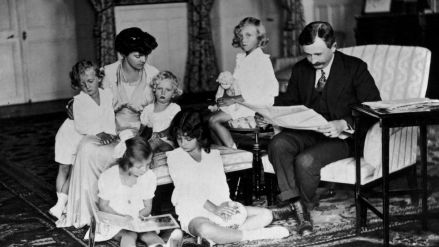
The last ruler of the Austro-Hungarian Empire fathered 8 children and died a century ago at the age of less than 35.
see more
How could Poniatowski have allowed this to happen? Branicki had given his word of honour that he would return. It was bitter lesson that he did so, just a as he that he was in the company of Russian troops. Earlier, he had passed on all that he knew about the Republic’s defence capabilities to the Tsarina and her commanders.
Talleyrand said, when talking of the king’s actions “This is more than a crime, it’s a mistake”. He was right. Especially since in January 1792, Russia had ended the war against Turkey and could start transferring troops to the west, to the Polish border. Which indeed happened.
Stanisław Poniatowski should have recognised the accelerating threat. “All sides warned about the concentration of troops on the eastern border and the despatches from Saint Petersburg of Antoni Deboli, a Polish emissary to Russia were truly alarming” according to Krystyna Zienkowska the royal biographer. But the letters from April 1792 from the King showed that Russian military preparations were treated chiefly as a demonstration of strength. He judged the chance of a Russian invasion to be low and he was convinced that if it came to that, Poland would in any case not fight alone but in alliance with the Prussians.
The king wrote in a correspondence with London “Moscow up to now is appropriately silent, but surrounds us with her troops and silently threatens us…but it probably will not come to open war. But if it did and Moscow attacks, the King of Prussia, whether he likes it or not must come to our defence. According to our alliance he is obligated to defend our independence”. In correspondence with Stockholm he wrote “We are here, preparing to defend ourselves, but I think that it will not come to this, namely that Moscow would initiate a war against us”.
In truth, the Russian royal council had decided in May 1791 that it would act to destroy the Constitution and by force if necessary.
The Russians are coming ‘with assistance’
If there was another Poniatowski on the throne, Józef, the Polish army would have been better prepared on the eve of the war. The king’s nephew was in Warsaw from November 1791. He remained in constant contact with the Military Commission, the national body overseeing defence matters. He proposed many times, concrete action to strengthen Poland’s defence. This included contracts with landowners to supply rations, establishing a corps of engineers (pontooneers) or allocating an artillery battery to each infantry brigade. But unfortunately, fine minds were deaf to the prince’s arguments and probably, even royal intervention had little success.
The young Poniatowski left for Ukraine on 6 May he was appointed commander of the forces stationed there ‘”carrying the most general and vaguest suggestions as to how to act should an armed conflict arise.” This happened on the 18 May. On that day, the Russians crossed the border with the Republic and soon after, Stanisław August received the so-called ‘Russian Declaration’. In accordance with the terms, Catherine’s soldiers marched deep onto Poland with assistance . “The armies were friendly, and acted in cooperation in the rebuilding of the Republic, her rights and privileges All those who accept this can count…on all manner of help and the guaranteed inviolability of property and person alike”.
What stance did the King actually take, in the face of Russian aggression, from 22 May when he was appointed commander-in-chief by the Parliament? Publicly he was combative. In Parliament, he called on the members loudly “I shall go and present myself on the battlefield”. But in trusted company, he admitted that diplomacy was more important than war and his declaration to go to the front started to look more absurd by the week.
The Warsaw street started to comment that the King’s warlike enthusiasm could serve as the title of an opera “A little jaunt or picnic to the great camp at Praga at the Grochów pub”. Is it possible to wonder if the King had asked his nephew in a letter “ how comfortable will I be in camp and what is the cuisine like”?
In so far as his military involvement was almost negligible, his diplomatic activity was significant. On his recommendation, Ignacy Potocki travelled to Berlin. Potocki was the speaker of the Lithuanian Parliament and the joint author of the Constitutuion. He was tasked to ensure that Prussia sent forces to aid Poland. Unfortunately he was browbeaten by Prussian decision makers with King Frederick William at their head. It became clear that the Prussian alliance was nothing but a pipedream. So Poniatowski sought an understanding with Catherine. On 22 June he sent the Empress a letter to cease hostilities and to establish a Russo-Polish friendship.
High morale and motivation
Meanwhile the situation at the front was difficult, but not hopeless, despite the Polish troops being in constant retreat. Duke Louis of Württemberg , the commander, showed himself to be a traitor as he wrote to the Prussians of his pretending to resist the Russians. Ammunition and food were running low but the Poles could still pull off some brilliant manoevres.
Prince Józef and Tadeusz Kościuszko won at the battles of Zieleńce and Dubienka. But the most important fact was that the forces under Poniatowski reached the Vistula from Ukraine more or less intact. The royal nephew saw the possibility of continuing the fight and on 20 July, he proposed to his uncle two options of prosecuting the war with Russia .
The first assumed the Poles would divide their forces into four “depending on the contracting four invasion routes taken by the enemy, with the aim to halt them and defend the capital”. In short, four Polish groupings against four Russian and blocking the road to Warsaw.
The second option was to concentrate Polish forces and strike “in the Lublin area” against one or two of the above mentioned four enemy columns. On 23 July , the Prince wrote to the King “ On our side, we shall defend as much as is possible, but we ask you, Sire, to send us all help to resolve our needs that are worsening by the day”.
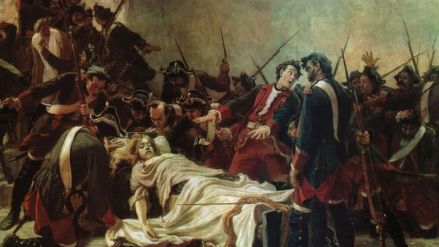
Later, just a secret, tongues ripped out, witnesses sent to hard labor and no nighttime conversations among fellow countrymen.
see more
Were these plans realistic? Did they promise hope to reverse the war? The first, not necessarily. Any attempt to divide the Polish forces into four components would have meant a dilution of available strength and would have facilitated the Russian advance, committing the Poles to a deeper defensive. As Adam Wolański, the most respected authority on the ‘War of the Defence of the Constitution’ and the author of the ‘Polish-Russian War of 1792’ wrote “Polish forces would have been escorting a sort of advance guard, a stronger enemy force up to the very walls of the capital.” The second option gave greater possibilities as it assumed going on to the offensive which was more in keeping with the Polish spirit.
Despite the Poles being on the retreat since May, they maintained their morale. The soldiers were battle hungry and thirsted for contact with one Russian column or even two. They had a chance in the Lublin area, and could have been reinforced. “ They had left regular army reinforcements in the Byszew area that could have been used, ( also in the garrison of the capital and scattered around the country”, according to Wolański. Even if the Russians had tied down the Poles, they could not have taken the capital on the march.
The capital was a strong point of resistance, not only for its riverside position, but from the fighting spirit of its residents who would have defended themselves if not months then at least for a matter of weeks. If the Prince’s forces could have outflanked the besiegers, they would have been caught in a pincer movement.
In the less optimistic option, the Prince’s armies would have had to retreat to beyond the Vistula from the ‘battle of Lublin.” But it would not have meant a military catastrophe. The royal nephew planned “to regroup his forces behind the Vistula. reinforce and continue the fight on better terms”.
To prevent any unpleasant surprises, the commander recommended spanning the Vistula at Puławy on 25 July. The younger Poniatowski had thought of everything and the soldiers under his command could have at least felt, in Polish terms at least, well cared for and looked after and safe. We add that though the Republic was attacked by around 100,000 enemy troops there would be fewer to take the field against Poniatowski. Part of the army would have had to remain deep inside Poland as an occupation force, leaving around 50,000 to take on the 40,000 Poles under Poniatowski and his reinforcements.
What can we conclude? “In as much as the Russian situation worsened , that of the Poles improved and the fortunes of war could have changed in in their favour and the occupied Polish territories could have been retaken,” Wolański stresses. “ There was a certain rebalancing of forces. It is possible to imagine a pitched battle, but difficult to forsee the results however,” wrote military historian Tadeusz Rawski. “The armed forces and the Republic’s material base enabled the Poles to continue the fight n circumstances more favourable than those which Kościuszko found two years later”, wrote Jerzy Skowronek, Józef Poniatowski’s biographer.
Sire, you could have chosen an honourable death
The Polish-Russian war could have lasted longer. Moreover, the Poles could have and should have continued and successfully. Wolański wrote of the military situation in mid-July and inaccurately either, entitling a chapter “ The Current Situation of Prince Józef is Somewhat Encouraging .” The agreement of the King was necessary and he received a reply from Catherine on 22 July. The Empress disabused him of any illusions, rejecting all Polish proposals including the candidature of her grandson the Grand Duke Konstantin for the Polish throne. She demanded the admission of the King into the Targowica Confederation. This meant hat the King must order the army to surrender its arms.
Knowing the character of Stanisław August, we could imagine that capitulation rather than fighting was nearer to his thoughts. During the course of a 30-year reign he repeatedly tried to crawl out from the Russian embrace, but whenever he was placed to make a choice, obstinacy or giving in, he generally chose the latter. This happened again. Despite givng the order to surrender the King called an extraordinary meeting of his closest advisors at the Royal Castle. The speakers, ministers and royal brothers attended including the Primate Michał Poniatowski, a few in all.
According to some historians, Stanisław August placed them all in a fait accompli. “ He decided that he would join the Targowica Confederation and he would not change his mind”. Thers maintain that he moved for a vote to join Branicki and the others, and only then made his decision. Whatever the case mang the 12 voters (apart form the King) seven, including Hugo Kołłątaj and the King’s brother Michał voted in favour of capitulation. Five, including Ignacy Potocki and Stanisław Małachowski rejected the Russian ultimatum and supported the continuation of hostilities.
The presence of Kołłątaj, the most radical among the patriots, in the group favouring surrender is surprising. This is attributed to royal good sense. Even the deputy chancellors thought that it was necessary to submit to Russia. Stanisław August had no real alternative. Others maintain that Kołłątaj was behind the initiative to kidnap the king and contacted Józef Poniatowski in the matter. The plan called for Prince Józef Sanguszko a subordinate commander, to come to Warsaw with his brigade, with the official aim at least of obtaining cannon from the arsenal and to invite the King to review a cavalry parade. Unofficially, this was to kidnap the king and take him to the military base.
The vacillating King would not exercise any real authority there but he could serve as the army’s symbol of further fighting. Prince Józef thought the matter over for a few days, even ordering Sanguszko to come to Warsaw. But he abandoned the plan at he beginning of August. He tried to convince his uncle to continue the resistance. He wrote “Sire, you could have chosen an honourable death….a total loss but a meritorious one over that of he rest of the nation (the Targowica Confederation) intrigues, betrayals, vice and weakness. Yes, Sire, it’s necessary to sacrifice oneself.” He also sent an officers to Warsaw including Michał Wielhorski and Stanisłąw Mokronowski.
.
All in vain though. The King showed his truer colours and ordered the army to surrender unconditionally. Józef obeyed orders and resigned his commission. Up to 6 August, he was followed by 200 brother officers.
